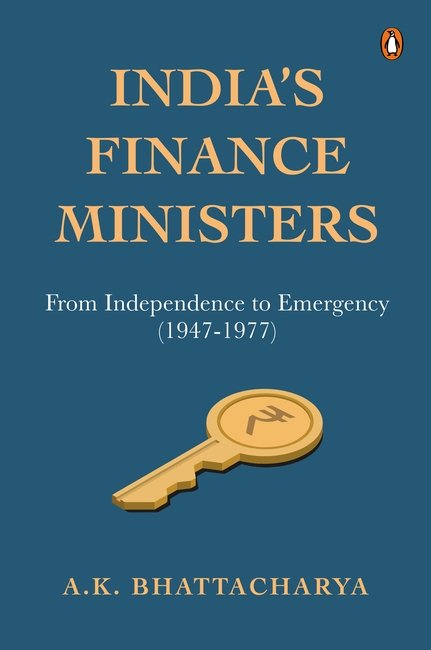India’s Finance Ministers: A Comprehensive Insight into Economic Policies
India’s Finance Ministers play a crucial role in shaping the nation’s economic policies and driving growth. Recently, renowned journalist A.K. Bhattacharya authored a new book titled “India’s Finance Ministers,” which provides a comprehensive insight into the economic decision-makers who have steered the country’s financial landscape. This article explores the significance of this book and its relevance for students preparing for government exams across various positions, including teachers, police officers, banking professionals, railway personnel, defense personnel, and civil service aspirants, ranging from PSCS to IAS.

Why this News is Important:
- Insights into Economic Policy Formulation: Understanding the decision-making process behind economic policies is vital for aspirants preparing for government exams. Bhattacharya’s book offers valuable insights into the thinking, strategies, and challenges faced by India’s finance ministers while formulating policies that impact the nation’s economy. Such knowledge is crucial for exams that assess candidates’ understanding of economic concepts and their ability to analyze policy implications.
- Historical Context of Economic Reforms: The book delves into the historical context of economic reforms in India. It provides a chronological account of major policy shifts, including liberalization, privatization, and globalization, and their impact on the economy. This historical perspective equips students with a comprehensive understanding of India’s economic journey and aids in answering questions related to the evolution of economic policies.
- Examination Relevance: Many government exams, such as those for civil services, banking, and defense positions, include questions on economic policies and finance ministers. Bhattacharya’s book acts as a valuable resource for students to enhance their knowledge base and tackle such questions with confidence. By studying the book’s contents, aspirants can gain a competitive edge and improve their chances of success in these exams.
Historical Context:
India’s journey towards economic liberalization began in 1991 with the initiation of economic reforms. The introduction of new policies and structural changes aimed to open up the Indian economy, encourage foreign investments, and boost growth. Since then, several finance ministers have played pivotal roles in shaping India’s economic landscape. A.K. Bhattacharya’s book offers a historical context to these transformative reforms and sheds light on the contributions of various finance ministers.
Key Takeaways from “India’s Finance Ministers: A Comprehensive Insight into Economic Policies”:
| Serial Number | Key Takeaway |
|---|---|
| 1 | The book provides an in-depth understanding of the decision-making process behind India’s economic policies. |
| 2 | It offers a chronological account of major economic reforms and policy shifts in India. |
| 3 | Aspirants can gain insights into the challenges faced by finance ministers and their strategies to address them. |
| 4 | The book equips students with knowledge relevant to government exams that include questions on economic policies. |
| 5 | By studying the book, aspirants can enhance their understanding of India’s economic journey and its impact on various sectors. |
Important FAQs for Students from this News
What is the significance of A.K. Bhattacharya’s book, “India’s Finance Ministers,” for government exam preparation?
A.K. Bhattacharya’s book offers valuable insights into the decision-making process behind India’s economic policies, providing a comprehensive understanding of the contributions of finance ministers. This knowledge is relevant for government exams that assess candidates’ understanding of economic concepts and policy implications.
How can studying the historical context of economic reforms help in exams?
Understanding the historical context of economic reforms helps students answer questions related to the evolution of economic policies. It provides a chronological account of major policy shifts, such as liberalization, privatization, and globalization, and their impact on the Indian economy.
Which government exams may include questions on economic policies and finance ministers?
Various government exams, including civil services, banking, defense, and other positions like teachers, police officers, and railway personnel, may include questions on economic policies and finance ministers. A.K. Bhattacharya’s book can aid in preparing for these exams.
How can studying “India’s Finance Ministers” enhance exam preparation?
Studying “India’s Finance Ministers” can enhance exam preparation by equipping students with a deeper understanding of economic policies, challenges faced by finance ministers, and their strategies to address them. This knowledge helps in answering questions related to economic concepts and finance ministers’ roles.
How can knowledge of India’s economic journey benefit aspirants?
Knowledge of India’s economic journey provides aspirants with insights into the impact of economic reforms on various sectors. It enhances their understanding of the country’s growth trajectory and equips them with relevant information for exams that involve economic questions.
Some Important Current Affairs Links


















